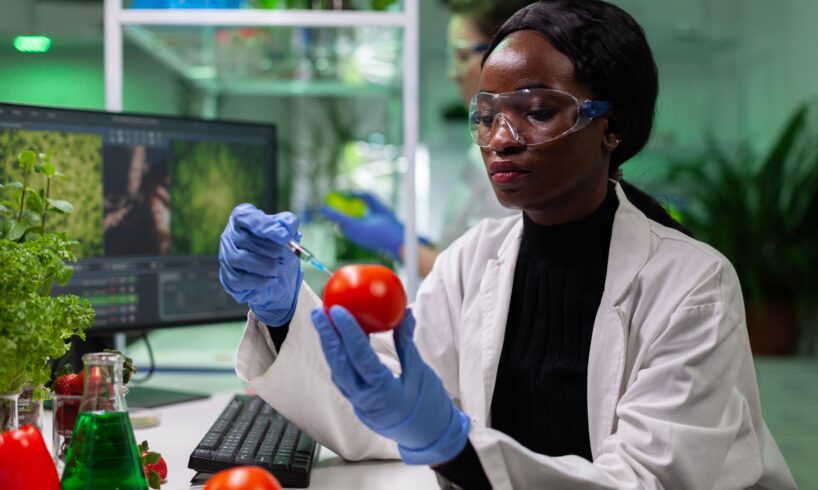
GMO stands for genetically modified organism.
It refers to an organism whose genetic material has been altered in the laboratory using genetic engineering techniques such as recombinant DNA technology and reproductive cloning.
These processes are usually done to bring about desired physiological traits or biological products.
What is the difference between genetic modification and selective breeding?
Selective breeding is a familiar practice that entails giving priority to individuals of a species with desirable traits to boost the chances of producing offspring with similar qualities.
And it has been used in livestock production, crop farming, and pet breeding. Farmers can decide to choose the biggest cows or sweetest corns to breed.
Genetic modification, on the other hand, has to do with directly changing the genes of an organism.
YOU MIGHT LIKE: FOR SMOKERS: These foods and fruits will help clean your lungs
This often means adding genes from a completely different species to give it traits it could never get through normal breeding, for example, making a plant resistant to insects by adding a gene from a bacteria.
While selective breeding can take time because it relies on nature, scientists use genetic modification to create desired traits faster and more precisely.
The reality about GMOs
Genetically modified organisms (GMOs) have now become a part of human existence.
In agriculture, farmers grow genetically modified crops like corn and soybeans that are designed to resist pests or survive tough weather.
In medicine, scientists use GMOs to produce insulin for diabetics or vaccines to prevent diseases. And for the purpose of research, genetically modified animals are used to study diseases and test new treatments in laboratories.
The origin of GM foods
READ ALSO: 3 Nigerian foods that hit different when it’s raining
It was in 1994 that people in the United States, according to Britannica, were allowed to eat genetically modified (GM) foods for the first time.
And then by 2014–2015, most of the corn, cotton, and soybeans grown in the U.S. were genetically modified.
By the end of 2014, GM crops were being grown on a large amount of land in over 20 countries, mostly in North and South America.
A major reason genetically modified crops received adoption is that they reduce the need for chemical insecticides.
For example, in some places where crops like potatoes, cotton, and corn were modified with a gene from a bacteria called Bacillus thuringiensis (or Bt), farmers used fewer insecticides.
This is because the Bt gene helps the plants make a natural substance (Bt toxin) that kills certain pests.
GM crops can also produce more food on the same amount of land.
READ MORE: Africa takes fresh look at GMO crops as drought blights continent
In India, studies showed that Bt cotton gave 30–80% higher harvests compared to regular cotton. This happened because the Bt cotton was much better at fighting off a pest called the bollworm, which usually damages cotton plants.
What are the approved GM crops in Nigeria?
According to the International Service for the Acquisition of Agri-biotech Applications, Inc. (ISAAA Inc.), five GM crops have been approved in Nigeria and they are:
Cotton
Cowpea
Maize
Soybean
Wheat
These crops are available across various trade names like TELA maize, HB4 Wheat, and Optimum GAT™ (Soybean).
What are the concerns raised?
Heavy criticism has trailed discussions around the introduction of GM crops in Nigeria for several reasons including:
Insufficient general awareness about them;
Negative health implications according to experts; and
Long-term biodiversity damage.
RECOMMENDED: Reheating these 5 foods could be dangerous, here’s why
In an exclusive chat with Premium Times in April 2024, Qrisstuberg Amua, Executive Director, Centre for Food Safety and Agricultural Research, expressed his concerns regarding the new maize varieties approved by the Federal Government of Nigeria.
He made sure to convey a feeling of apprehension, noting that Nigerians across the board “have every reason to be worried about Tela maize adoption in the country.”
He also added that GMOs disrupt the hormonal, endocrine and immune systems, increasing the risk of various forms of cancer.
EXPLORE: 10 foods that directly prevent cancer growth





